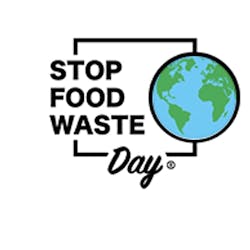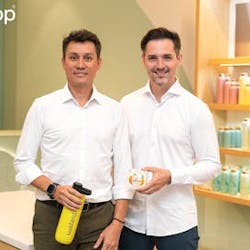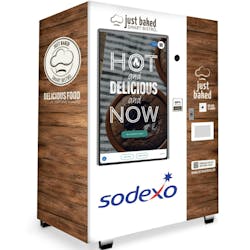Sodexo revealed the results of the first international sustainable food barometer carried out in partnership with the research and opinion polls institute Harris Interactive. Conducted in 2023 among more than 5,000 people in Brazil, France, the United Kingdom and the United States, the exclusive study breaks down the disparities between people's representations of sustainable food and their associated behaviors for the first time.
This action-oriented barometer aims to identify the concrete obstacles as well as the levers to induce changes in eating habits and accelerate the shift toward more sustainable diets.
“Operating in 45 countries and serving 80 million consumers every day, Sodexo is a privileged observer of the changes in people's behaviors, expectations and aspirations,” Sophie Bellon, chairwoman of Sodexo’s board of directors and chief executive officer, said in the announcement. “By launching this first international sustainable food barometer, we wanted to gain a better understanding of aspirations, obstacles, and concrete levers for changing individual practices. Our ambition is to set the entire ecosystem in motion to accelerate real change.”
Key takeaways of the barometer
The awareness of the urgent need to change eating habits is not only well-established but also positively perceived. Overall, 75% of people surveyed have a positive perception of sustainable food, as they spontaneously associate it with feelings such as optimism and pleasure. 59% of them believe that adopting a more sustainable diet improves their quality of life.
Awareness of the urgent need to change our eating habits is now universal: Across all generations and all income categories, nearly 8 out of 10 respondents (79%) believe that adopting more sustainable behaviors is an urgent matter.
The majority of people aspire to eat in a more sustainable way in all the out-of-home food places they use every day: restaurants, schools, universities and company restaurants.
A majority of respondents say they have already adopted sustainable food habits: 71% say they reduce their waste, 63% eat seasonal produce and 55% buy local produce whenever possible.
A gap between aspirations and actual behaviors. The barometer highlights a discrepancy between people's perception of their food and its actual sustainability. 56% think their food is already sustainable. Yet for example, dairy products (78%) and meat (71%) remain among the most regularly consumed products, far ahead of cereals (60%) and plant-based proteins (45%), with a notably lower carbon footprint.
According to the study, the changes that people are prepared to make are more a matter of adjustments than actual in-depth transformations. For example, when asked about the alternatives they might introduce into their diet, respondents answer with products they already consume. To replace meat, they mention eggs or dairy products. On the other hand, the barometer reveals a certain reluctance to embrace little-known alternatives such as seaweed and insects.
In their everyday food choices, consumers prioritize cost (73%) and taste (62%) over the product's environmental impact (30%).
Sustainable food suffers from several misconceptions: 40% of those surveyed believed it is more expensive, and a third of citizens feel that it is difficult to find sustainable products and believe that adopting a sustainable diet requires effort.
The benefits of sustainable food are more motivating when perceived as individual rather than collective. Convincing people to adopt more sustainable eating habits means demonstrating the individual benefits regarding health, taste, and savings.
According to the barometer, in all countries, the primary motivation for eating more sustainably in all countries is the expected health benefits (46%). This is generally followed by the expected financial savings (35%).
“By highlighting the gap between respondents' acute awareness of the challenges surrounding sustainable food and their actual behaviors, this barometer provides us with guidelines to change firmly rooted habits: raising awareness about plant-forward alternatives, facilitating access to little-known products, or providing ideas for tasty, simple, and sustainable recipes,” Anna Notarianni, Sodexo Group’s chief impact officer, said in the announcement. “This study reminds us of how important it is to take the human into account when leading change: health, taste and pleasure are essential drivers in making sustainability more desirable.”
Sodexo has taken on the responsibility of positively influencing the food choices of the 80 million consumers it serves daily toward a more balanced and sustainable diet. The Group has identified four priority levers that will enable Sodexo to reduce its emissions by 90% by 2040 across its entire value chain, from farm to fork:
Products: By promoting local and sustainable farming practices, supporting suppliers in reducing their carbon emissions, and developing local and short-distance sourcing. This way, the Group turns its supply chain into an essential part of its action plan, and extends to its suppliers its desire to have a positive impact on people and on the planet.
Cooking: By designing new sustainable recipes, with the aim of labeling 70% of its main dishes “low-carbon” by 2030. To mobilize its teams around this challenge, Sodexo has launched dedicated MasterClasses. They are designed to turn Sodexo Chefs, nutritionists, buyers and marketing teams into ambassadors for food transformation, in turn encouraging customers and consumers to make more responsible choices. Well aware that pleasure is an essential lever for changing eating habits, Sodexo Chefs invent tasty plant-forward dishes every day, adapted to the diversity of people and food choices around the world. With its offers and brands such as Modern Recipe in France, Good Eating Company and Fooditude abroad, the Group demonstrates that it is possible to offer tasty dishes by balancing plant and animal proteins.
Energy: By optimizing energy use in all its clients’ sites through less energy-intensive preparation methods, training site managers, and achieving the goal of 100% renewable electricity on sites operated directly by Sodexo by 2025.
Waste: By expanding its WasteWatch program to 85% of its catering sites by 2025, to achieve Sodexo’s goal of cutting food waste in half in all its operations by the same date.
By expanding its WasteWatch program to 85% of its catering sites by 2025, to achieve Sodexo’s goal of cutting food waste in half in all its operations by the same date.





